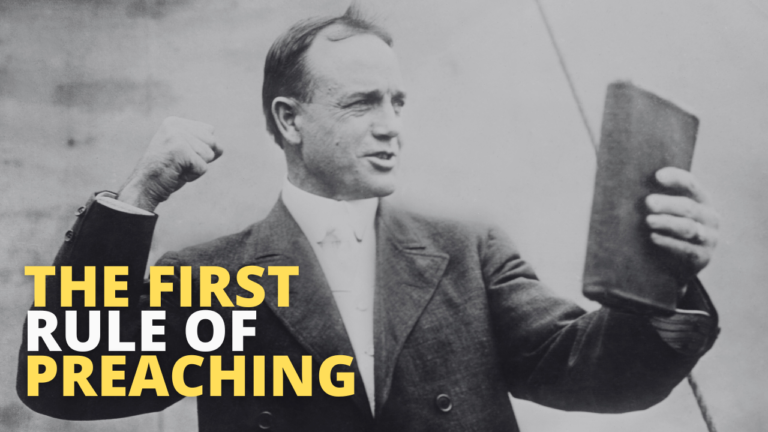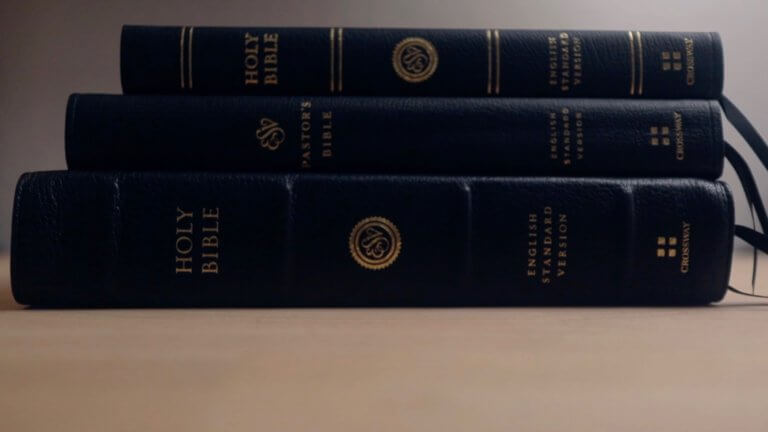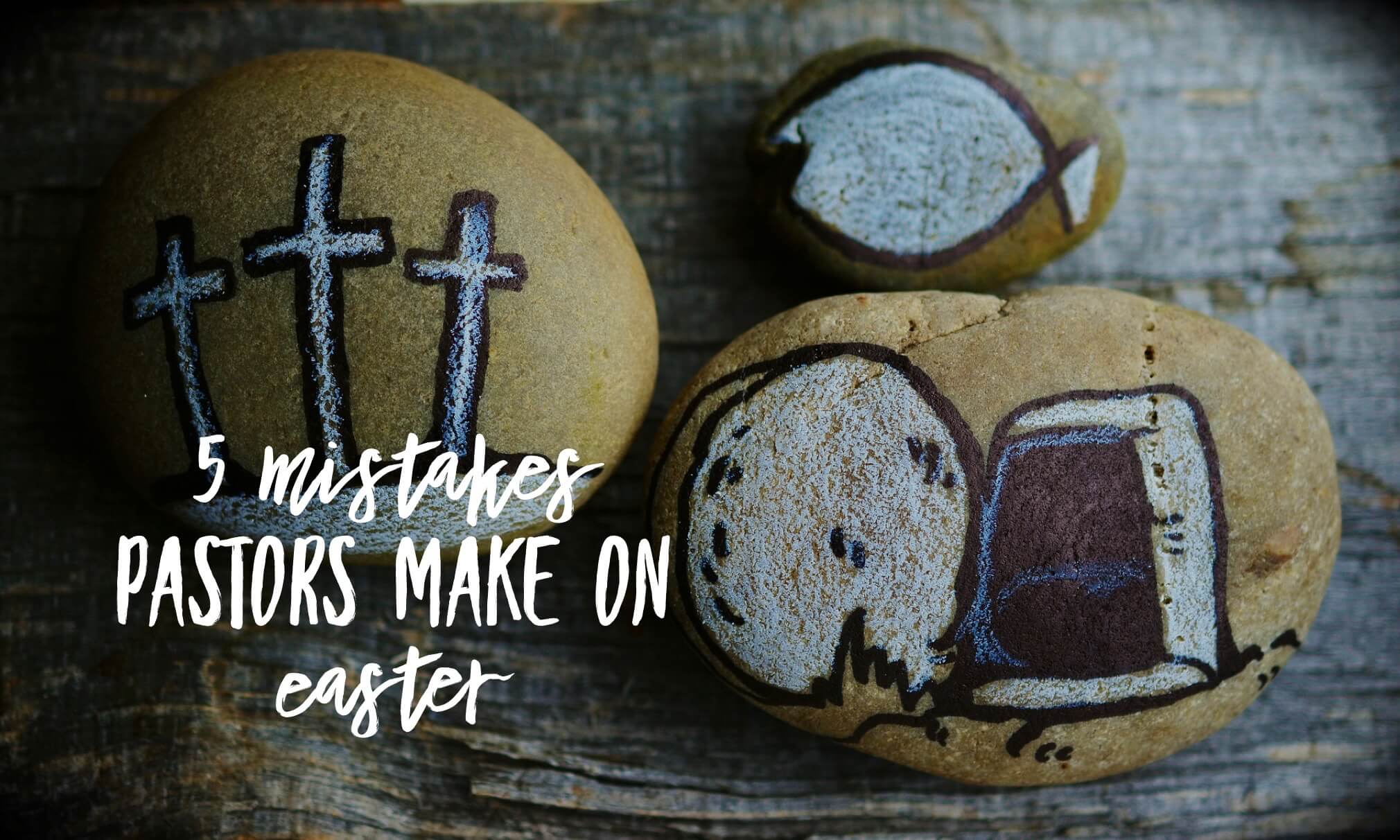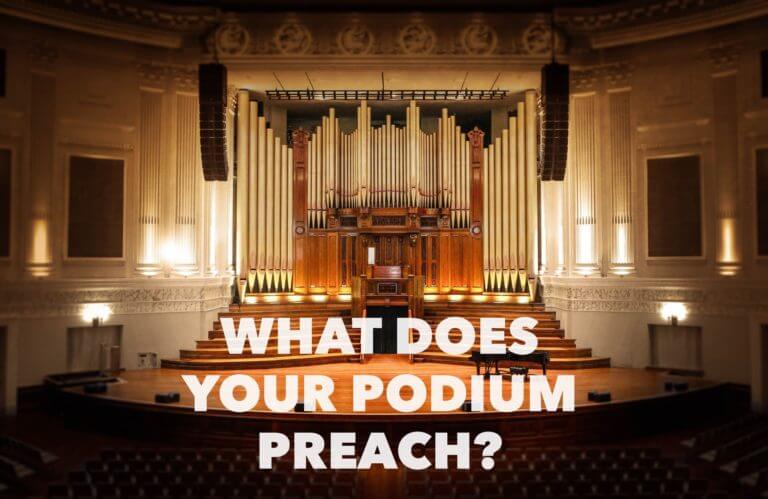The Power of the Pause in a Sermon
One of the biggest mistakes that preachers make is neglecting the power of the pause.
Many of us are afraid of silence.
We think we have to fill every second with words.

Silence is awkward, so we are tempted to run from it and speed through our message as fast as possible.
As a result, where a pause should be, we add filler words like “ummm…” and “uhhh…” (Can you relate? I am definitely speaking to myself here too.)
In doing so, we miss out on one of the most powerful tools in a preacher’s bag – the pause.
Why is silence in a sermon so important?
A pause is the punctuation of a sermon.
Imagine reading a novel with no punctuation marks. No paragraph breaks.
Would you enjoy it? Would it move you?
Try this: Read the following quote out loud. It is a classic from C.S. Lewis’ The Lion, the Witch, and the Wardrobe. All punctuation has been removed.
Is he a man asked Lucy Aslan a man said Mr Beaver sternly Certainly not I tell you he is King of the wood and the son of the great emperor beyond the sea Don’t you know who is the King of the Beasts Aslan is a lion the Lion, the great lion ooh said Susan I’d thought he was a man Is he quite safe I shall feel rather nervous about meeting a lion That you will dearie and no mistake said Mrs Beaver if there’s anyone who can appear before Aslan without their knees knocking, they’re either braver than most or else just silly Then he isn’t safe said Lucy Safe said Mr Beaver don’t you hear what Mrs Beaver tells you Who said anything about safe Course he isn’t safe But he’s good
This is what a sermon without pauses sounds like. Dull. Cluttered. No space to breathe. Hurts my head.
Now, read it again with punctuation. And as you read, make sure to pause at every period, comma, and question mark.
“Is he a man?” asked Lucy.
“Aslan a man!” said Mr Beaver sternly. Certainly not. I tell you he is King of the wood and the son of the great emperor-beyond- the-sea. Don’t you know who is the King of the Beasts? Aslan is a lion – the Lion, the great lion.”
“ooh!” said Susan, “I’d thought he was a man. Is he – quite safe? I shall feel rather nervous about meeting a lion.”
“That you will, dearie, and no mistake” said Mrs Beaver; “if there’s anyone who can appear before Aslan without their knees knocking, they’re either braver than most or else just silly.”
“Then he isn’t safe?” said Lucy.
“Safe?” said Mr Beaver; “don’t you hear what Mrs Beaver tells you? Who said anything about safe? ‘Course he isn’t safe. But he’s good…”
The difference is obvious. Even for the 90% of you who didn’t actually read out loud like I asked.
A good sermon should speed up, slow down, and pause in the same way a writer intends words to flow from the page. It is the same way that a great song builds and breaks and builds again.
When you want to set a key word apart, pause before it.
When you want to allow a powerful idea to sink in, pause.
Pauses are the punctuation marks of sermons. Sometimes you need a comma (brief pause). Sometimes you need a period (full pause). And sometimes an ellipses (long pause for suspense).
Pauses are the empty space that allow room to breathe. Time to think. Ideas to grab hold.
Silence is your friend, not the enemy.
So… pause.




